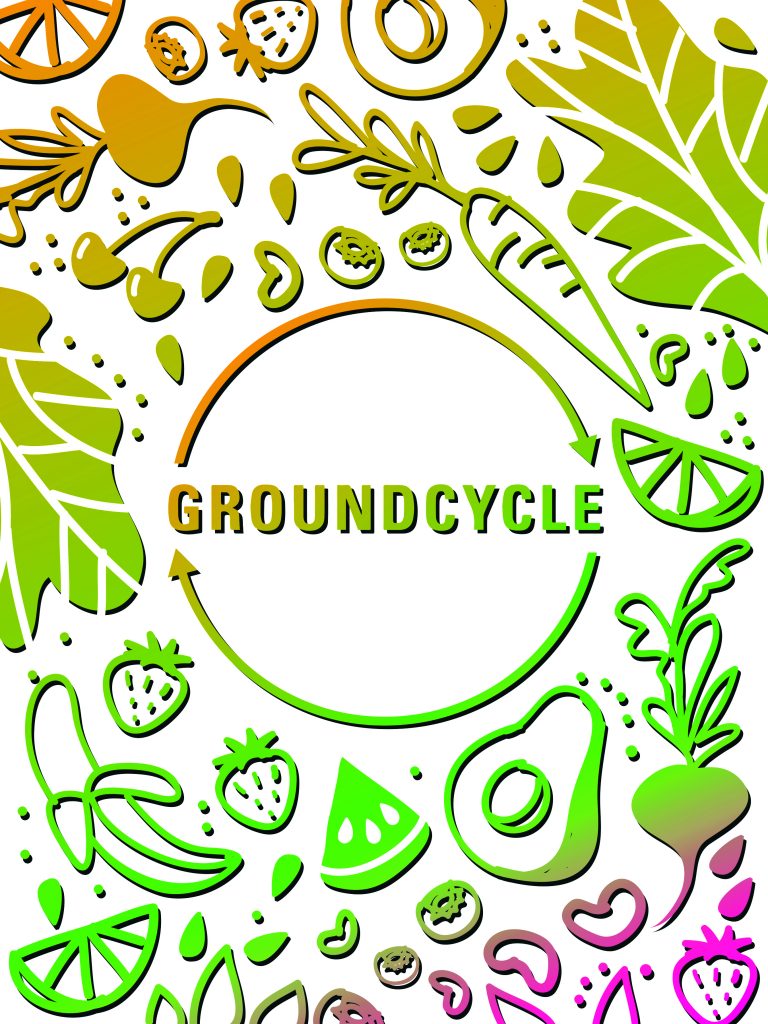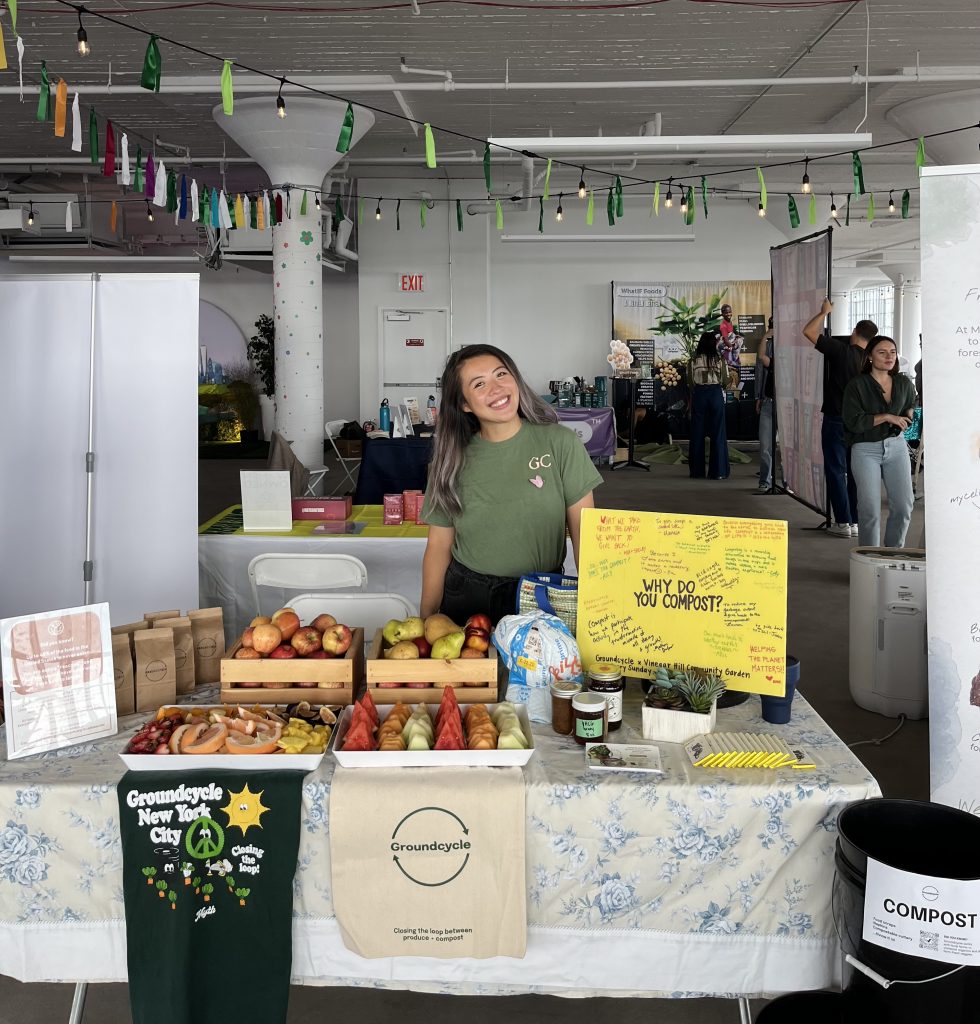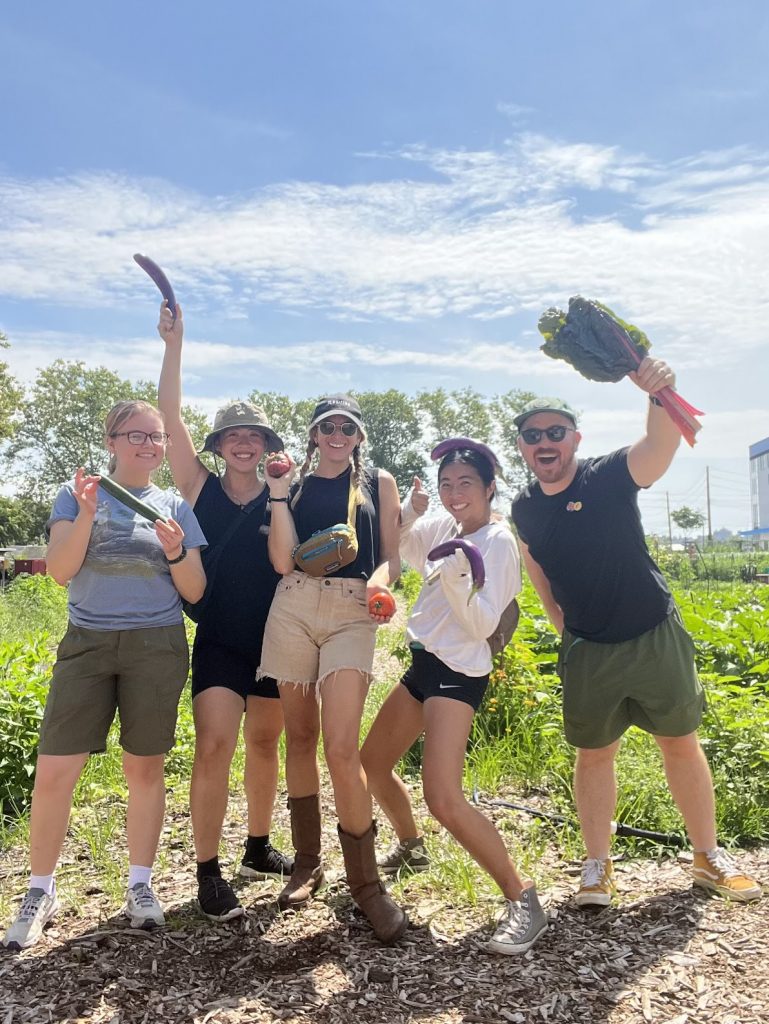When Vivian Lin learned about the composting process and how food scraps and organic waste could be used as a resource to add nutrients to the soil, she instantly channeled her energy into learning ways to close the gaps of food waste in her community. Within weeks, she shifted her career as a professional architect to boldly create an operation that seeks to divert waste, promote sustainability, and respect the earth, one bin at a time.

Nearly 25 percent of the food purchased by Americans is wasted, according to the NYC Department of Environmental Conservation, and when Brooklyn native Vivian Lin learned about a way to divert that waste, it changed the trajectory of her life.

In April 2020, she joined environmentally-focused Earth month virtual events that delved into a wide spectrum of topics, yet conversations on the cycle of food production and composting specifically piqued her interest.
The United States Environmental Protection Agency defines composting as a “controlled, aerobic (oxygen-required) process that converts organic materials into nutrient-rich, biologically stable soil amendment or mulch through natural decomposition.”
She was shocked by how the staggering amount of food scraps and organic waste we produce could be diverted from landfills and used as a valuable resource instead. “Up until that point I had no idea how food was grown or how much work it takes and this whole cycle of how food waste can become fertilizer, it just blew my mind,” Lin said.
An architect by trade, Lin shifted her focus from physical structures to investigate the infrastructures that processed organic waste into compost throughout NYC and discovered a noticeable gap. Days after her deep dive of compost research, the New York City Department of Sanitation coincidentally announced a suspension of curbside composting pickups due to budget cuts as a result of the pandemic.
Moreover, farms were losing partnerships and distribution opportunities leaving an alarming amount of farm-produced fresh produce to rot in fields. Options to divert waste were dwindling for New Yorkers and farmers alike, but rather than accepting a dead-end, Lin seized the opportunity to forge her own path forward. Thus, Groundcycle was born.
She contacted a few local farms and pitched an idea to bring them food scraps to use for compost as well as deliver their harvested fresh food to city dwellers. Once Garden of Eve Farm in Long Island and McEnroe Organic Farm in Millerton expressed interest in piloting the program, Lin eagerly reached out to family and friends to join her in closing the gap between produce and compost through a bin swap service.
With 13 inaugural members on board, Groundcycle launched the first official bin swap on May 10th, 2020. The bin swap service delivers farm-fresh produce straight to your door in a 5-gallon bin and swaps it with your organic waste and food scraps which are processed and converted to compost at local farms.
Lin’s resourcefulness and determination was crucial to overcome challenges in the early stages of Groundcycle’s operations, including recruiting friends to drive the bin swap routes because she didn’t know how to drive at the time. News spread in the following months and bin swap membership began to grow, with Park Slope residents accounting for the majority of members.
Four years later, Groundcycle’s bin swap program has expanded to service over 300 members all across Brooklyn and Manhattan, diverting over 600,000 pounds of organic waste to date. In fact, Lin says she’s discovered new areas of the city for the first time since starting the service. “It’s been really beautiful for me as a lifelong New Yorker to discover all of these different pockets of Brooklyn,” Lin said.
Groundcycle also continues to grow and evolve to promote sustainable practices by collecting food scraps and organic waste from businesses, offices, and events including large-scale events such as House of Yes’ Earth Love Fest and Cherry Bombe’s Jubilee. Lin and her team ensure all edible food is reallocated to people who need it by filling community fridges across the city and distributing food items through other avenues of assistance.
Before founding Groundcycle, Lin didn’t know where her food came from and hopes that by playing an active role in composting, others can feel more connected to the cycle of food production and cultivation by seeing how their food scraps can ultimately nourish the soil of the fresh produce they receive.
“That’s how nature works,” she said, “you respect it and it will return something beautiful.”
Respecting nature extends beyond food waste diversion and spills into every area of consumption and Groundcycle now partners with local zero waste stores like Maison Jar and Precycle to offer
household and pantry essentials to bin swap members, thus reducing unnecessary packaging waste. Lin also works closely with florists around the city to repurpose and compost floral arrangements that would otherwise be tossed in the trash at the conclusion of events.
When reflecting on the last four years, Lin notes how grateful she is for the community of other sustainably-minded people who want to collaborate and amplify different missions to close gaps of access in all areas. She’s teamed up with a variety of organizations to host donation drives of hygiene items, winter coats, shoes, and other items to reallocate resources to people in need of assistance.

Lin encourages people who are curious about living more sustainably to not be afraid to start, even if that means bringing a reusable bag to the grocery store or freezing your food scraps from dinner instead of throwing them away.
“It really does start small,” she said. “As soon as you start making those little changes and you feel good about it, you’re really motivated to do more.”
If you’re interested in getting involved with Groundcycle’s mission to close the gap of produce and compost in Park Slope and beyond, visit groundcycle.org and @_groundcycle on Instagram.
“Because composting is so universal, everybody can play a part,” Lin said.
